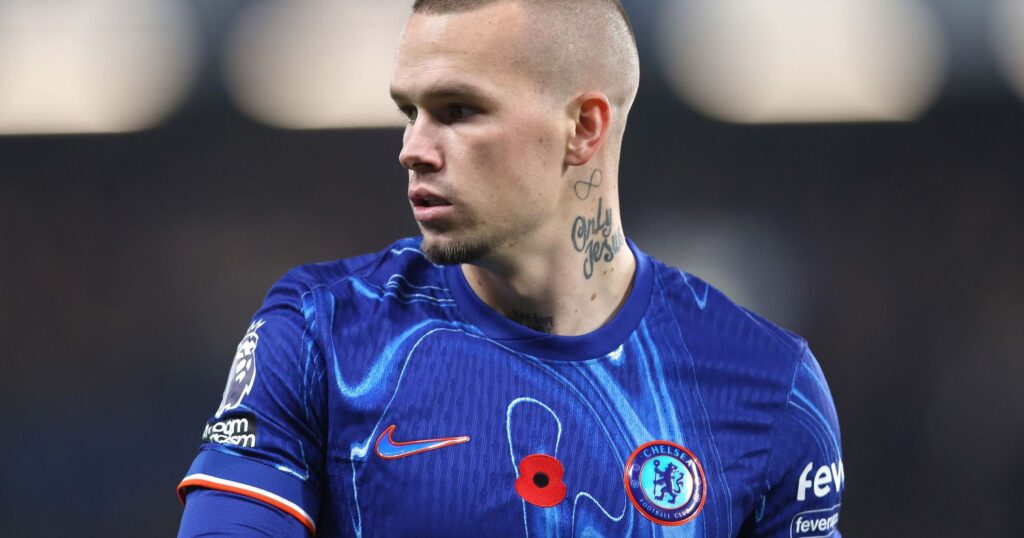Mykhailo Mudryk, the Chelsea forward, is currently under scrutiny after being charged by the Football Association (FA) for allegedly breaching anti-doping regulations. This situation has drawn considerable attention, especially given the high-profile nature of both the player and the club involved. The information was prominently reported in the Telegraph, raising alarms about the implications of such a charge on the athlete’s career.
Since late last year, Mudryk has been sidelined from any competitive play due to a positive test for a prohibited substance, which has prevented him from training with his teammates at Chelsea. This provisional suspension speaks volumes about the severity of the allegations against him, as it affects not only his participation in matches but also his ability to stay in shape through team training sessions. The latest developments emerged with the return of his ‘B’ sample, which has led the FA to formally charge the 24-year-old Ukrainian forward. The FA confirmed the charges, stating, “We can confirm that Mykhailo Mudryk has been charged with anti-doping rule violations alleging the presence and/or use of a prohibited substance, in terms of Regulations 3 and 4 of The FA’s Anti-Doping Regulations.” This statement indicates the seriousness of the allegations and the legal framework within which this case is being examined.
The FA’s statement was marked by caution, highlighting that the case is ongoing, which restricts them from providing additional comments at this moment. This aspect of confidentiality underscores the complex nature of doping cases in professional sports, where legal and procedural hurdles can complicate matters for all parties involved. If Mudryk is ultimately found guilty of the charges against him, he could face a significant ban from the sport, potentially lasting up to four years. This scenario represents a daunting prospect for the young athlete, who has seen his career trajectory take a concerning turn mere months after joining one of the world’s most famous football clubs.
In response to the charges, Mudryk took to Instagram to express his sense of disbelief regarding the test results. He stated that the positive test had come as a “complete shock” and emphasized his belief that he had never knowingly utilized any banned substances. “This has come as a complete shock as I have never knowingly used any banned substances or broken any rules, and am working closely with my team to investigate how this could have happened,” he insisted. His commitment to uncovering the circumstances surrounding the positive test reflects his determination not just to clear his name, but also to return to the pitch as soon as possible. He emphasized confidence in his innocence, asserting that he had not engaged in any wrongdoing and assured supporters that he would provide more information once the investigation allows for it.
Chelsea FC, currently participating in the FIFA Club World Cup in the United States, has remained silent on the allegations against Mudryk. The lack of an official club response adds to the uncertainty surrounding the player’s future and how the team will proceed in his absence. Mudryk, who was signed in 2023, carries the weight of expectations not only due to his prior performances—10 goals in 71 appearances across all competitions—but also due to the long-term contract he holds with the club. Despite his contributions on the field, his current predicament raises questions about his future at Stamford Bridge, particularly since he no longer has a designated shirt number, although his contract runs until 2030, with the option for an additional year.
As the world of football watches closely, the situation highlights the immense pressure athletes face, both on and off the field. Fans, pundits, and fellow players will no doubt be eager to see how this case unfolds, as its ramifications extend beyond Mudryk’s career and touch upon broader issues of integrity and accountability in sports. The ongoing coverage and discussions surrounding this incident signify the broader implications of anti-doping measures and the necessity of maintaining the sport’s integrity.



